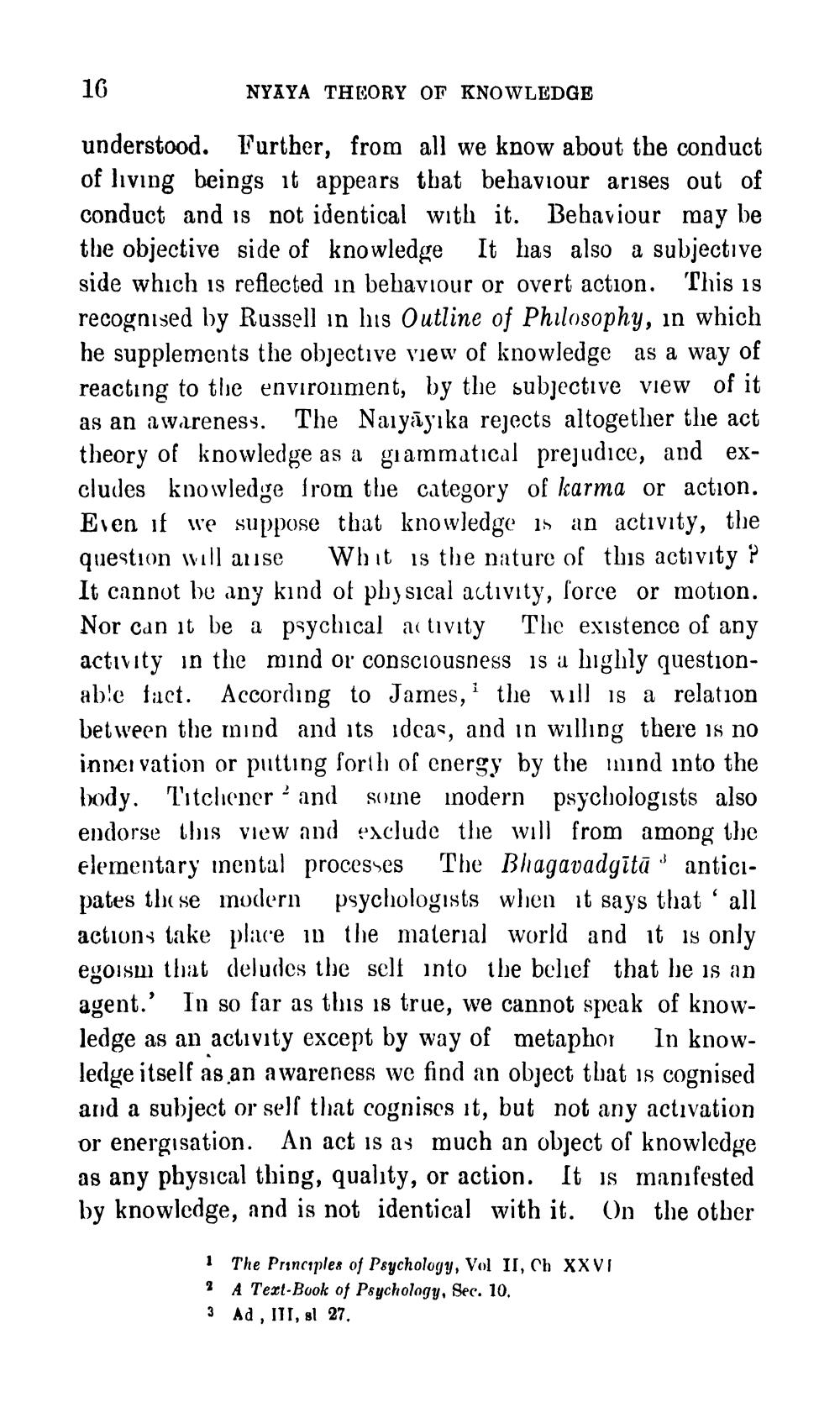________________
16
NYAYA THEORY OF KNOWLEDGE
understood. Further, from all we know about the conduct of living beings it appears that behaviour arises out of conduct and is not identical with it. Behaviour may be the objective side of knowledge It has also a subjective side which is reflected in behaviour or overt action. This is recognised by Russell in huis Outline of Philosophy, in which he supplements the objective view of knowledge as a way of reacting to the environment, by the subjective view of it as an awareness. The Naiyāyıka rejects altogether the act theory of knowledge as a giammatical prejudice, and excludes knowledge from the category of karma or action. Even if we suppose that knowledge is an activity, the question will ause Whit is the nature of this activity ? It cannot be any kind of physical activity, force or motion. Nor can it be a psychical activity The existence of any activity in the mind or consciousness is a highly questionable fact. According to James, the wall is a relation between the mind and its ideas, and in willing there is no innei vation or putting forth of energy by the mind into the body. Titchener - and some inodern psychologists also endorse this view and exclude the will from among the elementary inental processes The Bhagavadgītā' anticipates these modern psychologists when it says that all actions take place in the material world and it is only egoism that deludes the self into the belief that he is an agent.' In so far as this is true, we cannot speak of knowledge as an activity except by way of metaphor In knowledge itself as an awareness we find an object that is cognised and a subject or sell that cognises it, but not any activation or energisation. An act is as much an object of knowledge as any physical thing, quality, or action. It is manifested by knowledge, and is not identical with it. On the other
The Principles of Psychology, Vol II, Ch XXVI ? A Text-Book of Psychology, Sec. 10, 3 Ad, III, sl 27.




